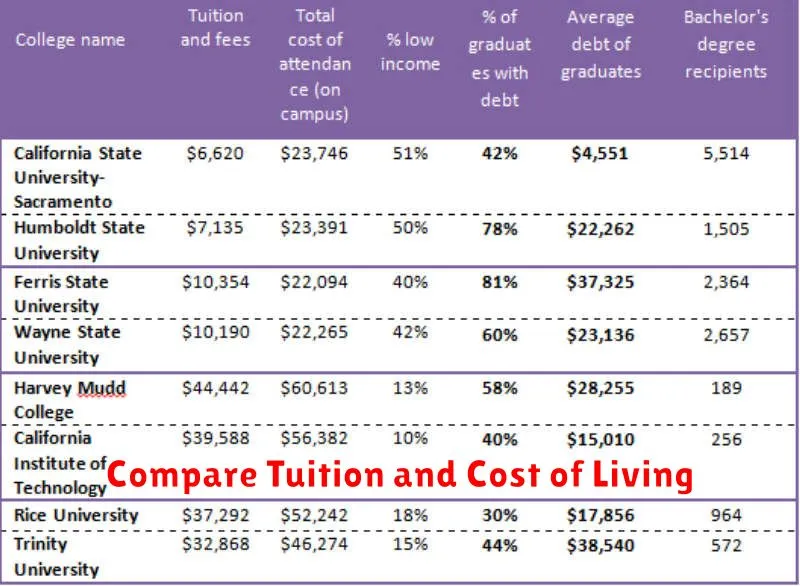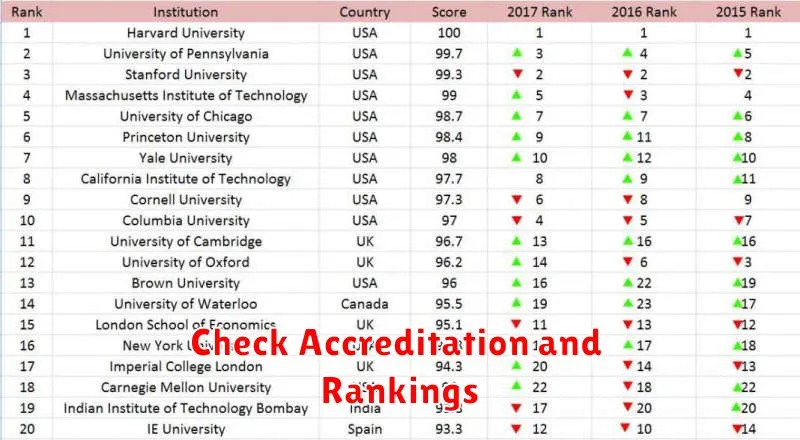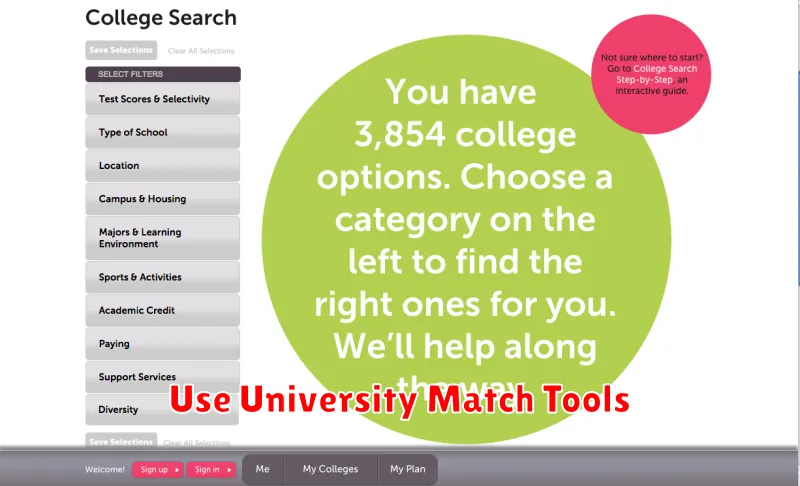Choosing the right university is a pivotal decision that will significantly impact your future. This important choice requires careful consideration of various factors, from academic programs and career aspirations to financial aid and campus environment. Finding the perfect fit can feel overwhelming, but by understanding your priorities and conducting thorough research, you can confidently navigate the university selection process and find the institution that best aligns with your individual needs and goals. This article will guide you through the essential steps to selecting the right university, providing valuable insights and practical advice to help you make an informed decision.
From exploring different academic programs and evaluating university rankings to considering campus culture and financial aid options, we will cover all the key aspects of university selection. Whether you are interested in a small liberal arts college or a large research university, this comprehensive guide will equip you with the knowledge and resources you need to make the best choice. Understanding your academic strengths and career aspirations is crucial in this process, and we will delve into how to identify these factors and align them with potential universities. Begin your journey towards higher education with confidence by learning how to choose the right university for you.
Understand Your Academic Goals
Before diving into university rankings or campus visits, clearly define your academic aspirations. Ask yourself crucial questions: What subjects genuinely excite you? What career path do you envision for yourself? Understanding your academic goals is the foundation of your university search.
Reflect on your strengths and weaknesses. Are you a math whiz drawn to STEM fields? Perhaps you thrive in creative writing and aspire to a career in journalism. Recognizing your aptitudes will help you identify programs best suited to your talents and learning style.
Consider your preferred learning environment. Do you prefer small, intimate classes or large lecture halls? Think about the level of interaction you desire with professors. Some students thrive in collaborative settings, while others prefer independent study. These preferences will influence your choice of university size and teaching style.
Research specific programs. Once you have a clearer picture of your academic goals, start researching universities known for excellence in your chosen field. Look beyond overall university rankings and focus on departmental rankings and faculty expertise.
Research Location and Culture
The university’s location and culture significantly impact your overall experience. Consider whether you prefer a bustling urban environment or a quieter, more rural setting. Urban universities often offer greater access to cultural attractions, internships, and diverse communities. Rural campuses, on the other hand, can provide a more focused and close-knit community.
Research the surrounding area. Is it safe? Does it offer amenities and activities that align with your interests? Think about the climate and whether it suits your preferences.
Campus culture is equally important. Explore the university’s values, traditions, and student organizations. Consider whether the campus environment feels welcoming and inclusive. Visiting the campus or attending virtual events can offer valuable insights into the university’s culture.
Compare Tuition and Cost of Living

A crucial factor in choosing the right university is the overall cost. Tuition fees vary significantly between institutions, and it’s essential to understand what’s included. Some universities might bundle fees for things like lab access or technology, while others charge them separately. Carefully compare these costs.
Beyond tuition, consider the cost of living. Expenses like housing, food, transportation, and entertainment can differ drastically depending on the university’s location. A university in a major city will likely have higher living expenses than one in a smaller town or rural area. Research these costs to accurately budget for your entire educational experience.
Creating a budget that incorporates both tuition and living expenses is highly recommended. This will help you determine the overall affordability of each university and make an informed decision based on your financial resources.
Check Accreditation and Rankings

Accreditation ensures that the university meets certain quality standards. Look for institutions accredited by recognized regional or national bodies. This is crucial for the value of your degree.
University rankings can offer insights into factors such as academic reputation, research output, and student satisfaction. Consult reputable ranking sources, but remember that rankings are just one piece of the puzzle and may not perfectly align with your individual priorities. Consider what factors are most important to you and weigh them accordingly.
Look beyond overall rankings and explore subject-specific rankings if you have a particular field of study in mind. Some institutions excel in certain areas more than others.
Visit Campus or Take Virtual Tour
Experiencing a university firsthand is invaluable. Visiting the campus allows you to absorb the atmosphere, visualize yourself as a student, and get a feel for the campus culture. Observe student interactions, the overall vibe, and the condition of facilities.
If a physical visit isn’t feasible, virtual tours are an excellent alternative. Most universities offer interactive online experiences showcasing their facilities, including classrooms, libraries, and student common areas. These tours often include informational videos and student testimonials, providing valuable insights.
Whether in-person or virtual, consider these key aspects during your tour:
- Classroom sizes and technology: Are they conducive to learning?
- Library resources: Evaluate the availability of books, journals, and online databases.
- Student support services: Locate career services, counseling centers, and academic advising offices.
- Residential halls and dining facilities: If you plan to live on campus, assess the living conditions and meal options.
Talk to Alumni or Current Students
Connecting with alumni or current students provides invaluable real-world insights into the university experience. They can offer perspectives on the academic rigor, social environment, and career support services.
Alumni can share their post-graduation experiences and how their education at the institution prepared them for their careers. Reach out through alumni networks or professional platforms like LinkedIn.
Current students can provide a snapshot of daily life on campus. University websites often feature student blogs or testimonials. Consider attending a university fair or open house where you can speak with current students directly.
Prepare a few key questions beforehand. Inquire about their favorite and least favorite aspects of the university, the level of academic challenge, and the availability of extracurricular activities that align with your interests. This first-hand information can significantly influence your decision-making process.
Use University Match Tools

University match tools are valuable resources that can significantly simplify your university search. These tools leverage data like your academic profile (GPA, test scores), extracurricular activities, and intended major to suggest universities that are a good fit for you. They consider factors like admission selectivity, academic rigor, and overall student body demographics to provide personalized recommendations.
Several reputable websites and organizations offer these tools. Many allow you to filter results based on location, campus size, and specific programs. Some even offer insights into financial aid possibilities and career outcomes related to specific universities. Utilizing these tools can save you time and effort by narrowing down your choices to institutions where you have a reasonable chance of acceptance and a positive experience.

